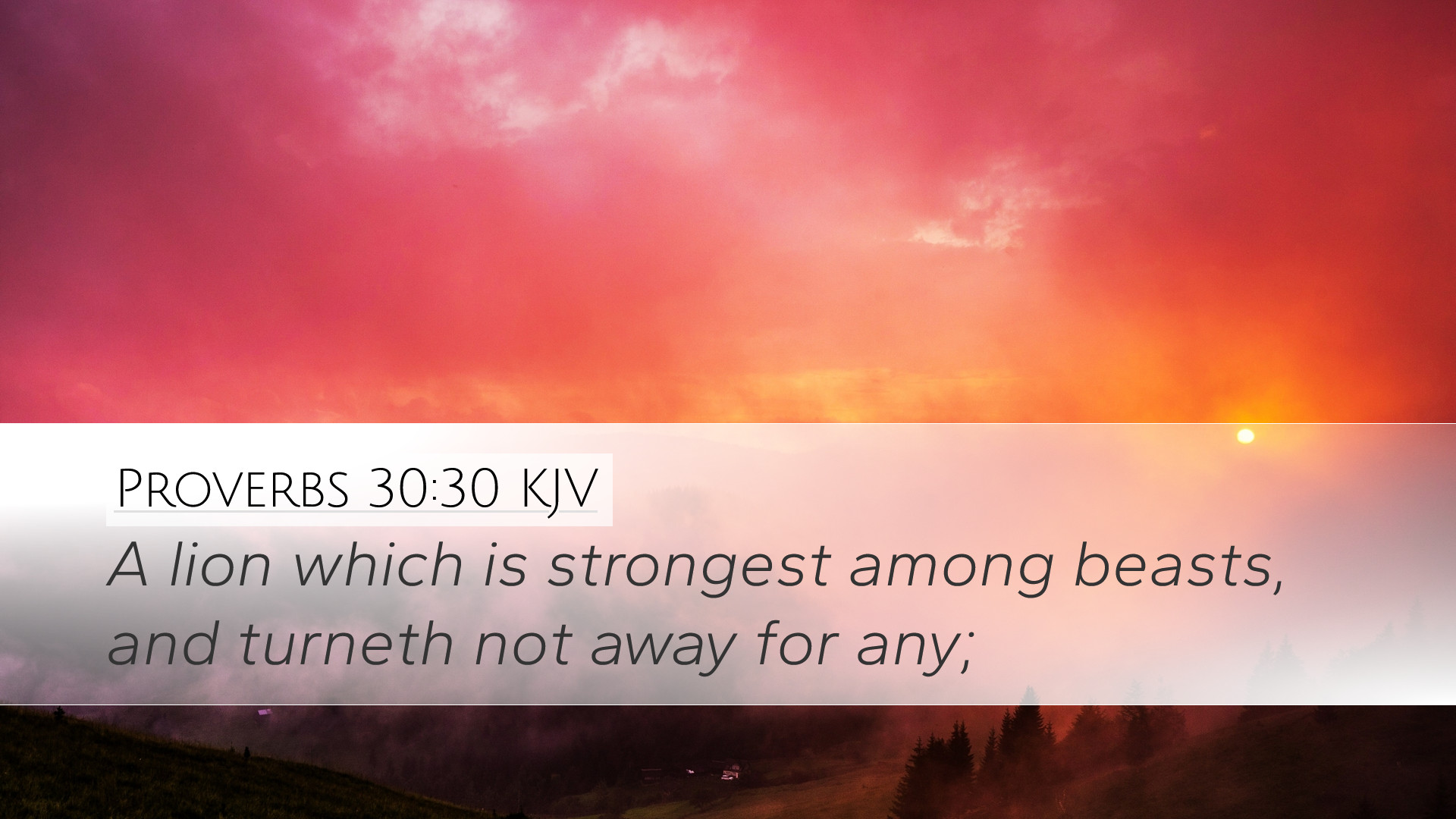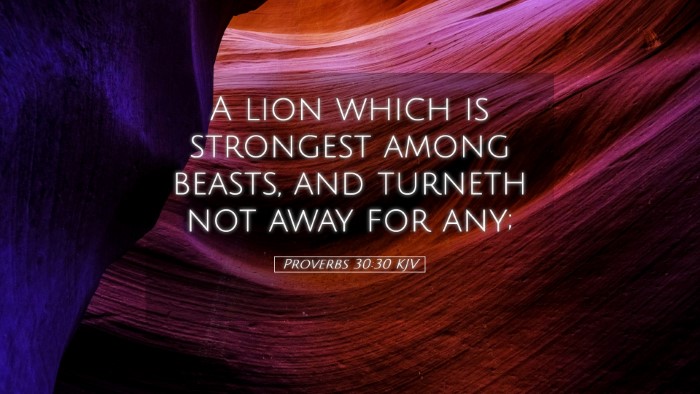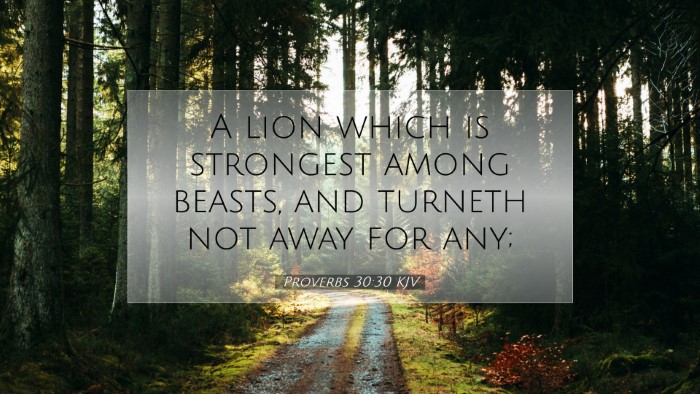Commentary on Proverbs 30:30
Proverbs 30:30 states:
"A lion, which is strongest among beasts, and turneth not away for any;"
Introduction
The verse is part of a series of observations made by Agur, a figure thought to demonstrate humility, wisdom, and an understanding of the natural world. Agur provides a reflection on strength, courage, and the characteristics of various animals as metaphors for human behavior and spiritual lessons.
Insights from Public Domain Commentaries
Matthew Henry's Commentary
Henry emphasizes the lion's unmatched strength and fearlessness as a representation of a leader or a figure of authority. He suggests that the lion's qualities serve as a metaphor for spiritual fortitude and integrity, implying that true strength does not shy away from challenges. Henry interprets this verse to convey that, like the lion, those who are called to leadership must embody a sense of fearlessness and integrity.
Albert Barnes' Notes
Barnes expands on the characteristics of the lion, noting that its strength derives not merely from physical prowess but also from its confidence and innate courage. Barnes argues that in the context of wisdom literature, the lion's behavior is a model for those undertaking the responsibilities of leadership. He insists that understanding one's own capacities and embracing them fully, like the lion, is essential for overcoming obstacles. To Barnes, this verse invites reflection on the importance of courage in both personal and communal circumstances, particularly in pursuing righteousness.
Adam Clarke's Commentary
Clarke draws attention to cultural and situational interpretations of the lion's strength. He refers to various ancient texts and traditions that regarded the lion as a symbol of kingly authority and power over nature. Clarke underscores the moral of dependence on God, illustrating that while the lion possesses natural strength, true strength for believers is derived from aligning with divine will. He further posits that the lion's fearless approach should inspire believers to confront life's "beasts," or trials, with determination and trust in God’s guidance.
Theological Reflections
This verse not only illustrates physical might but also serves as a reflection of spiritual resolve. It teaches that true strength is characterized by a refusal to back down in the face of adversity. The qualities of the lion can be a reminder for pastors, students, and scholars that overcoming challenges requires balance between courage and wisdom.
The Christian perspective finds resonance here; believers are called to embody the strength of the lion while according to the teachings of Christ, which emphasize humility, servant leadership, and reliance on God.
- Divine Strength vs. Natural Strength: The lion’s earthly power reminds us of the limitations of human strength without divine backing.
- Courage in Leadership: Like the lion, leaders are called to be steadfast, inspiring those around them by their courageous example.
- Confronting Challenges: Spiritual challenges require the same ferocity that the lion displays; Christians are encouraged to meet trials with resolve.
Practical Applications
In practical terms, Proverbs 30:30 equips readers with the understanding that strength encompasses more than physical might. As they navigate the complexities of life and ministry, they may consider the following:
- Embrace Strength: Acknowledge personal and communal strengths and use them for spiritual leadership and service.
- Fearlessness in Faith: Approach life's trials with the courage exemplified by the lion, backed with faith in God's purpose.
- Mentorship: Foster a culture of boldness in the church and communities by mentoring others to be strong and courageous.
Conclusion
Proverbs 30:30 encapsulates profound truths about strength and leadership. Against cultural backgrounds and natural observations, it underlines the necessity for courage and integrity in those who lead communities of faith. Engaging with this verse offers not only a reflection on personal character but also guidance for fostering resilience in collective spiritual journeys.


